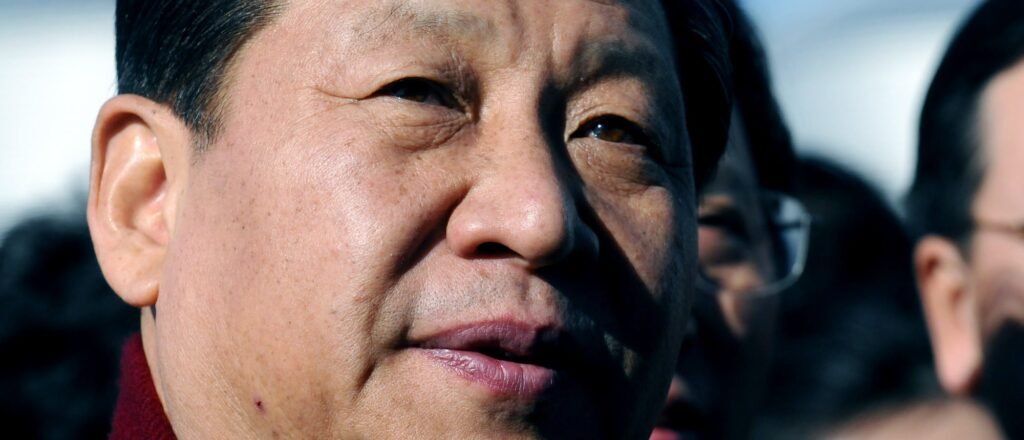Concerns Over Xi Jinping’s Control and Potential Risks
- “XI is clearly struggling with some kind of trouble. The smoke continues to flow.” – Charles Burton, a former Canadian diplomat.
- The situation is precarious. If Xi is indeed fighting for his political survival, it may push him to take extreme measures for self-preservation.
- There are indications that Chinese operatives are now active within the US. Towards the end of the Biden administration, several Border Patrol agents reported encountering a group of Chinese military personnel entering from Mexico; some had connections to the Chinese military.
- What prompts Xi Jinping to consider an attack? It might be a way to demonstrate his power to other Communist Party leaders or to create a chaotic situation that discourages any attempts to oust him.
Speculation suggests that Xi might be on the verge of losing his positions in both the Communist Party and the Chinese government. Nonetheless, various observers maintain that everything appears to be under control.
Whatever the scenario, the US and other nations may need to brace themselves for unexpected actions from the regime. Xi might have his reasons for wanting to catch the world off guard.
There are distinct signs that Xi is losing grip over the People’s Liberation Army, a key component of the Communist Party. A series of articles beginning in July 2025 highlighted a shift away from Xi’s singular leadership style, suggesting a criticism of his approach. Concurrently, several of his loyal allies were dismissed from their positions.
Notably, Xi’s top aide, General He Weidong, was last seen publicly in March 2025 and reportedly died in May under suspicious circumstances. This raises questions about Xi’s support among senior party officials.
His absence from the recent BRICS summit, marking the first time he missed this event, raises eyebrows, suggesting a forced withdrawal from the public eye due to internal pressures.
Analysts tracking the Communist Party have noted a trend of reducing Xi’s representation in state media since April. Charles Burton pointed out that Xi was compelled to emphasize “collective leadership” during a recent symposium, which reflects his diminishing influence.
Nonetheless, some scholars argue that these developments might not be as alarming as they seem. They suggest that many interpretations rely on unfounded rumors lacking proper context. Often, seemingly significant signs are simply routine or can be explained easily.
There is ongoing debate among Chinese analysts regarding whether the Communist Party is tightening rules around Xi’s authority. Some reports indicate a potential shift whereby Xi himself may wish to delegate more power.
While Xi is typically not known for sharing authority, the events unfolding this year prompt questions. “Where there’s smoke, there’s fire,” Burton remarked recently. Indeed, it seems Xi is facing considerable challenges.
What does this portend for the rest of the world? If Xi finds himself truly weakened, some speculate that a power transition in Beijing could occur smoothly, perhaps indicated by a recent lunch arranged by his mother with party elders to discuss a potential withdrawal.
In contrast, if Xi retains strong command, he may lack any motivations to disrupt the current status quo. However, if he is embroiled in a desperate political struggle, the global community faces potential risks.
Xi might seek to demonstrate his strength by instigating conflict or inciting nationalism among the Chinese populace, despite general public sentiment being against war. His authority over military operations may be waning, yet he still holds sway that could lead to provocations.
Through covert channels, he could activate networks of operatives in the US to sow chaos—actions that could include sabotaging infrastructures or orchestrating attacks.
The presence of Chinese agents in the US has been noted, including recent reports of illegal crossings at military bases, indicating premeditated observation and possible preparations for aggressive actions.
What motivates Xi Jinping to contemplate an attack? It might be a show of force to quell dissent within the Communist Party or perhaps to create an environment of crisis to strengthen his position.
However, it’s unclear if the regime is genuinely fraying at the edges. Given the opacity of the Communist Party’s internal dynamics, predicting outcomes is difficult. Amidst this ambiguity, preparing for potential internal conflict—possibly at the expense of other nations—seems prudent.
















